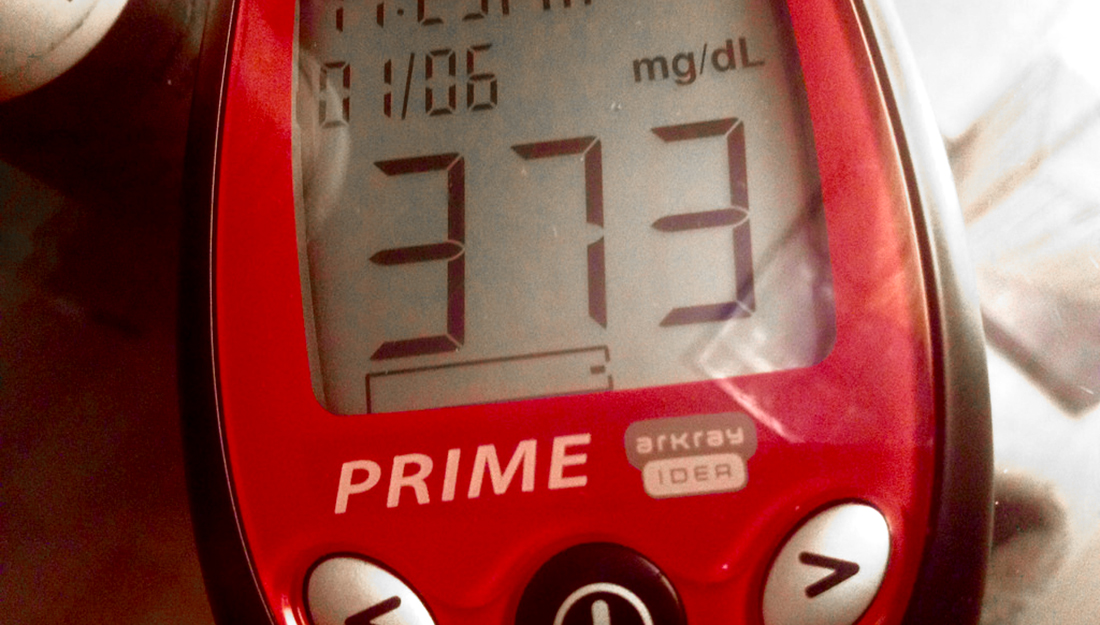- Dominic Hernandez
- Community, Healthy Living, Medicine, Show on VR homepage, Trending
Managing your diabetes before a crisis
Being two steps ahead of diabetes is the key to managing it

A diagnosis of diabetes can be a frightening thing, and it can overturn someone’s world. For almost 10 percent of the population, diabetes is a reality and working to manage their condition is a daily task. Claudia Perkins, RD, diabetes educator at the Texas A&M Coastal Bend Health Education Center, advises how to best manage the condition before a crisis strikes.
The onset of diabetes
Many people who think they aren’t at risk for diabetes actually may have some risk factors. According to the Centers for Disease Control and Prevention (CDC), an estimated 86 million Americans have prediabetes, and nine out of 10 of those people with prediabetes don’t know they have it.
Some warning signs for diabetes—fatigue, hunger and frequent urination—can be very easy to ignore, and many people will not realize that they have a serious problem. This is worrisome because diabetes, a medical condition that results in high blood sugar levels, can have very serious outcomes.
“Diabetes can be very serious if it’s not managed appropriately,” Perkins said. “Serious complications include blurred vision and blindness, kidney damage, increased risks for heart attack and stroke, and nerve damage to—and eventual amputation of—extremities.”
After the diagnosis
The first few days after a diagnosis may be difficult, but this is when lifestyle changes, such as adjusting diet, frequent exercise, medication and follow-up visits to your health care provider, should be made. “It’s important to make the changes sooner rather than later,” Perkins said. “It’s more beneficial to make adjustments before the condition is critical, and this can happen more quickly than people think.”
Perkins recommends people who are newly diagnosed promptly find a diabetes education class. “There’s a lot of information online and elsewhere that may not work for you specifically,” Perkins said. “Find a diabetes educator who can give personalized advice to help you maintain a healthier lifestyle with diet and exercise.”
How to start managing your diabetes
Many people with diabetes may also fall into the false belief that if they are faithfully taking their medication, then their condition is under control. However, this mindset can be harmful, as lifestyle choices play an important role in managing your diabetes.
“Learn about your medications,” Perkins said. “Know the dose, what its main action is and how to take them properly to avoid issues with hyper-or hypoglycemia.”
Making full lifestyle changes overnight can be extremely difficult, and cutting out your favorite foods cold turkey is often easier said than done. Although diet is one of the most important factors to controlling your diabetes, Perkins recommends trying a baby-steps approach.
“What we eat will manage diabetes, and a good start would be to eliminate excess sugar and sugary drinks and then work on carbohydrate counting and portion control,” Perkins said. “The better control you have of your blood sugar, then the more likely you are to avoid complications.”
One recommendation that Perkins has to limit blood sugar is to count carbohydrates. Carbohydrates are responsible for raising blood sugar levels, so managing the quantity and type of carbohydrates are important.
“Americans eat excess carbs, and that can be harmful for someone with diabetes,” Perkins added. “The average carbohydrate intake in a meal plan is about three or four carb choices per meal, and some restaurants serve between 10 and 15 carb choices.” (One carb choice is about 15 grams of carbohydrates.) According to the American Diabetes Association (ADA), one cup of pasta or rice is about three carb choices.
Along with a changed diet, frequent exercise and contact with your health care provider are important to managing your diabetes. According to the National Institute of Diabetes and Digestive and Kidney Diseases (NIDDK), physical activity can keep your blood sugar within the target range and helps insulin absorb glucose into your body’s cells for energy.
“Talk with your health care team about how much physical activity you should be doing,” Perkins said. “Frequent communication with your health care team and knowing your A1C test numbers—which measure average levels of blood sugar over past three months—will help put you on the right track to best manage your health.”
Diabetes can be a serious condition, but it can be managed. “As long as you follow the plan discussed with your health care provider, there’s no reason to let diabetes take control of your life,” Perkins added.
For more information, visit the American Diabetes Association website or call the Texas A&M Coastal Bend Health Education Center Diabetes Education Program at 1.866.524.1408.
Media contact: media@tamu.edu


